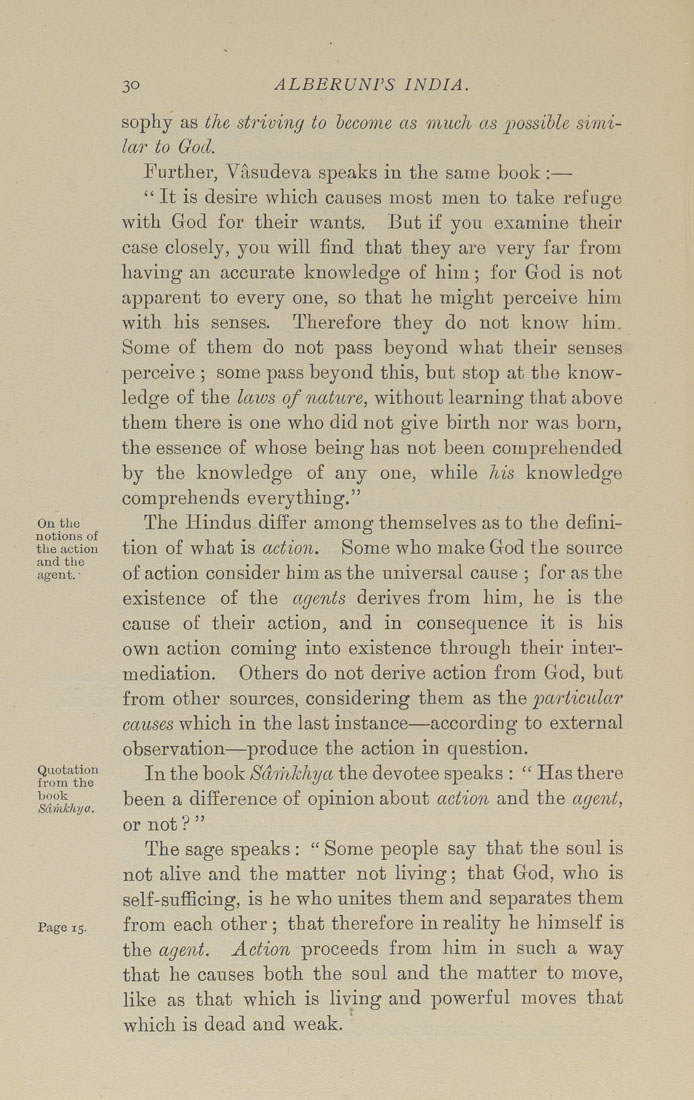Bīrūnī, Muḥammad ibn Aḥmad, Alberuni's India (v. 1)
(London : Kegan Paul, Trench, Trübner & Co., 1910.)
|
||
|
|
|
|
| Page 30 |

30 ALBERUNPS INDIA. On the notions of tlie action and the agent. • Quotation from the book SoAhkhyo.. Page 15. sophy as the striving to become as much as 'possible simi¬ lar to God. Further, Vasudeva speaks in the same book :— "It is desire which causes most men to take refuge with God for their wants. But if you examine their case closely, you will find that they are very far from having an accurate knowledge of him; for God is not apparent to every one, so that he might perceive him with his senses. Therefore they do not know him. Some of them do not pass beyond what their senses perceive ; some pass beyond this, but stop at the know¬ ledge of the laws of nature, without learning that above them there is one who did not give birth nor was born, the essence of whose being has not been comprehended by the knowledge of any one, while his knowledge comprehends everything." The Hindus differ among themselves as to the defini¬ tion of what is action. Some who make God the source of action consider him as the universal cause ; for as the existence of the agents derives from him, he is the cause of their action, and in consequence it is his own action coming into existence through their inter¬ mediation. Others do not derive action from God, but from other sources, considering them as the particular causes which in the last instance—according to external observation—produce the action in question. In the book Sdmkhya the devotee speaks : " Has there been a difference of opinion about action and the agent, or not ? " The sage speaks : " Some people say that the soul is not alive and the matter not living; that God, who is self-sufficing, is he who unites them and separates them from each other ; that therefore in reality he himself is the agent. Action proceeds from him in such a way that he causes both the soul and the matter to move, like as that which is living and powerful moves that which is dead and weak. |
| Page 30 |







